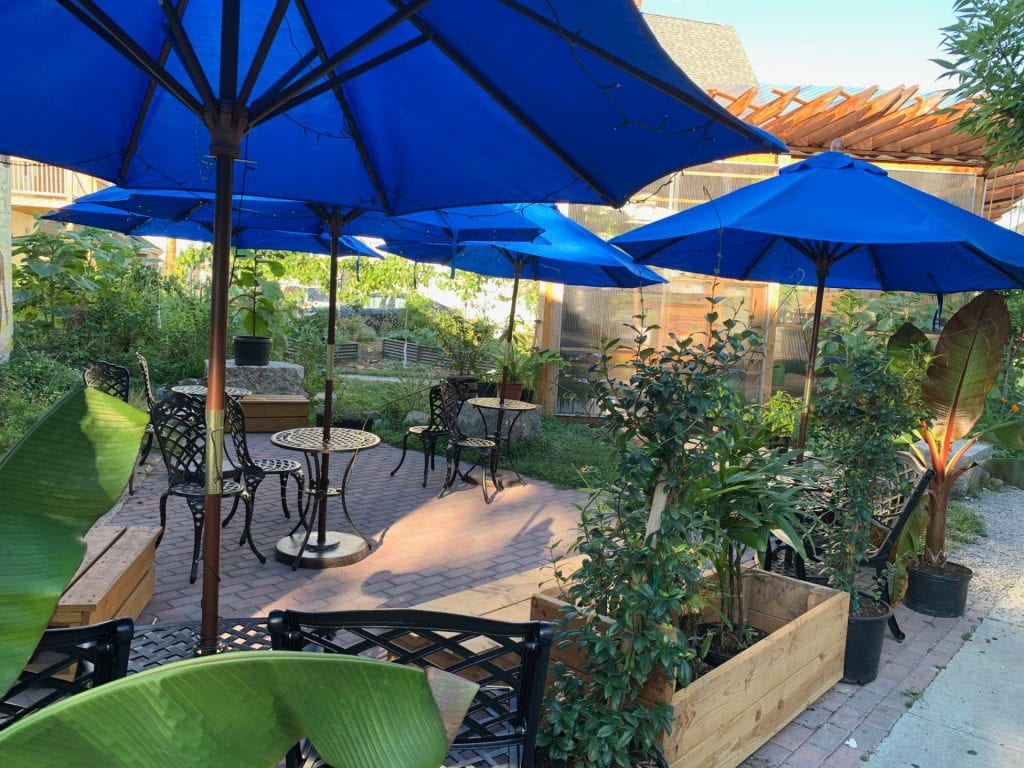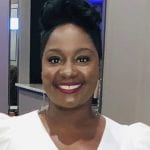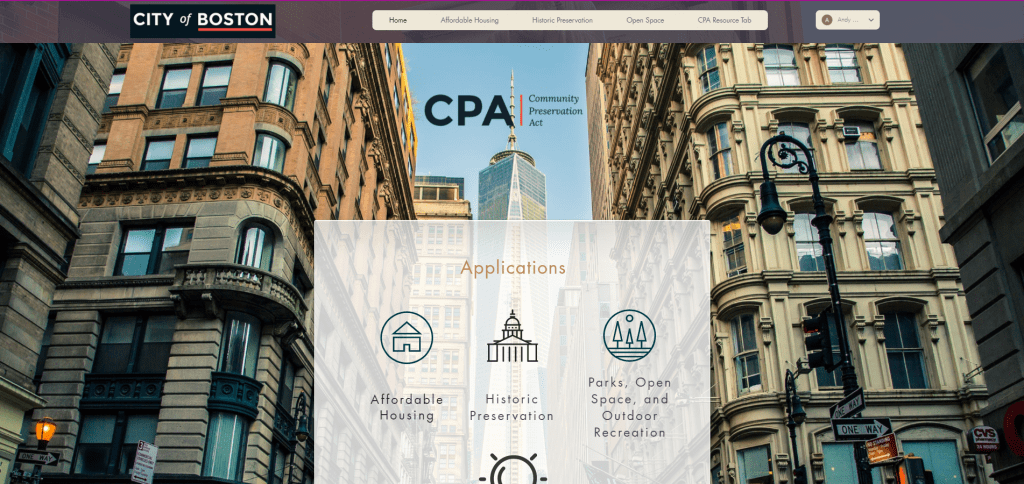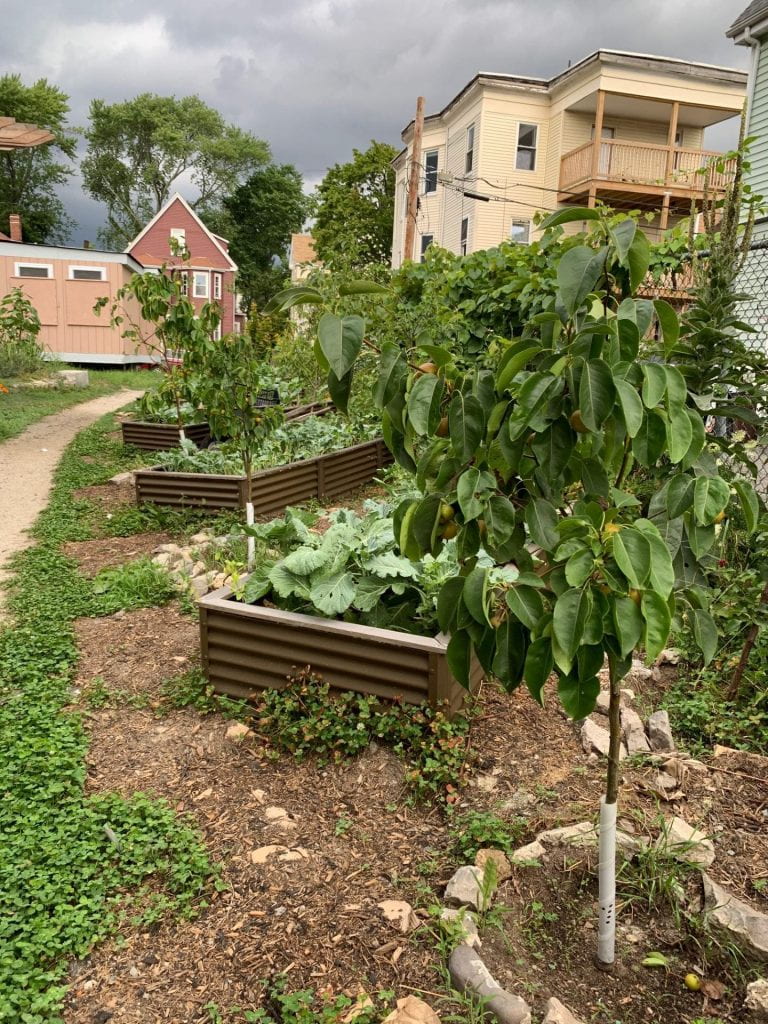
Images above: An empty lot in Dorchester was renovated in 2019 to include fruit trees, an arbor and raised beds for growing food as part of Boston’s Community Preservation Act.
By Michelle Davis
Helping to distribute $25 million is a lot of responsibility, especially when a plethora of community groups are counting on it. But that’s the situation in which Wentworth senior Andrew Ngo found himself as he sat at the controls of Boston’s Community Preservation Act (CPA) online public meeting, making sure the allocation of funds went smoothly.
Nearly 100 city leaders, community advocates and anxious applicants joined the virtual gathering to see if their projects for affordable housing, parks and open space, and historical preservation were funded.
The high-pressure, public review of 81 applications— which normally takes place in person—happened this year online and without a hitch. Like a pro, Ngo ’21 navigated the new system, which he and fellow Wentworth students Bryan Soriano ’21 and Rahul Bahl ’21 created from scratch.
Thadine Brown, CPA director of community relations, watched the meeting with great pride as three months of hard work by the Wentworth co-op team paid off. A first-generation college student and a person of color, Brown was determined to give these students the time and attention she said she remembers needing at their age.
“It was a win-win,” says Brown. “I invested time and energy into the team and they took a lot of work off my shoulders to produce an outstanding product.”

“I’m most proud of actually designing the website. I learned a lot about the tool. We also got to shadow the city programmers working on the GIS mapping software, which was really interesting.” —Rahul Bahl, Computer Information Systems ’21

“[These students] were dependable, eager to learn and fast moving. If there was something they didn’t know or I couldn’t advise them on, they would say ‘Don’t worry, we will figure it out.’ And they always did. I could really throw anything at them and they’d find a solution.” —Thadine Brown
On the docket for this public meeting were projects ranging from the restoration of the 1899 Riverside Theater in Hyde Park, 19th-century row houses in Chinatown and the 1857 League of Women for Community Service building in Boston’s South End to the creation of a plaza in Boston to honor acclaimed African American artist Allan Rohan Crite and a new Frederick Douglass Plaza and green space in the Lower Roxbury neighborhood. Funded by 1% of property taxes in Boston, these improvements—both large and small—make a significant difference in the affordability and quality of life in the city. The Wentworth team shortened the review process by more than a month and made reviewing applications much easier, eliminating the need for 400-page printed binders.

The Wentworth student-designed CPA website
For three intense months, the team met briefly with Brown each morning and afternoon, working on the elements of the project in between. They coded, designed and tested, located images, organized massive amounts of content, tracked numerous projects on spreadsheets, recreated documents and developed a user guide for the CPA staff. The students pulled from specific experiences in previous classes to tackle and complete tasks. Their efforts culminated in a presentation of their new online review system to the CPA Committee of business, legal and advocacy leaders in Boston. Before what Soriano described as a “flawless performance,” the team practiced in front of Brown, generated feedback and presented again. They then presented in front of their faculty a third time.
“This co-op gave computer science and engineering students a chance to be social entrepreneurs helping to solve worthwhile problems in the world,” says Wentworth Executive in Residence David Mareira, who helped to connect the city with the Wentworth co-op team.

“I learned you can’t always wait for someone else to step up and take the lead. Even though it was outside my comfort zone, I started stepping up and leading more to make everything flow smoothly.” —Andrew Ngo, Computer Science ’21

“We had to trust each other and take accountability for getting our own work done well. I’m most proud of all the work we put into making a flawless presentation at the end.” —Bryan Soriano, Computer Information Systems ’21

The Dorchester project including raised garden beds

